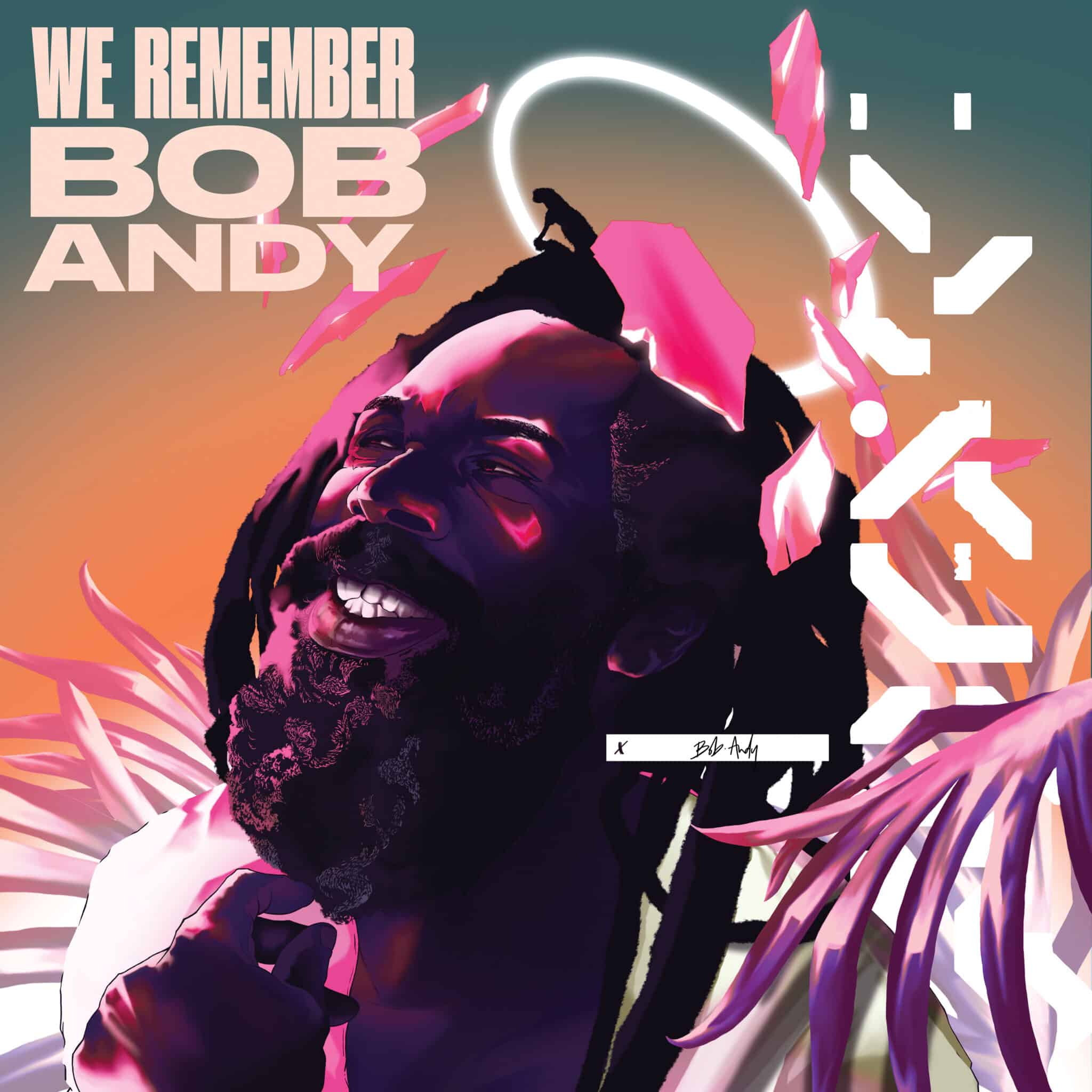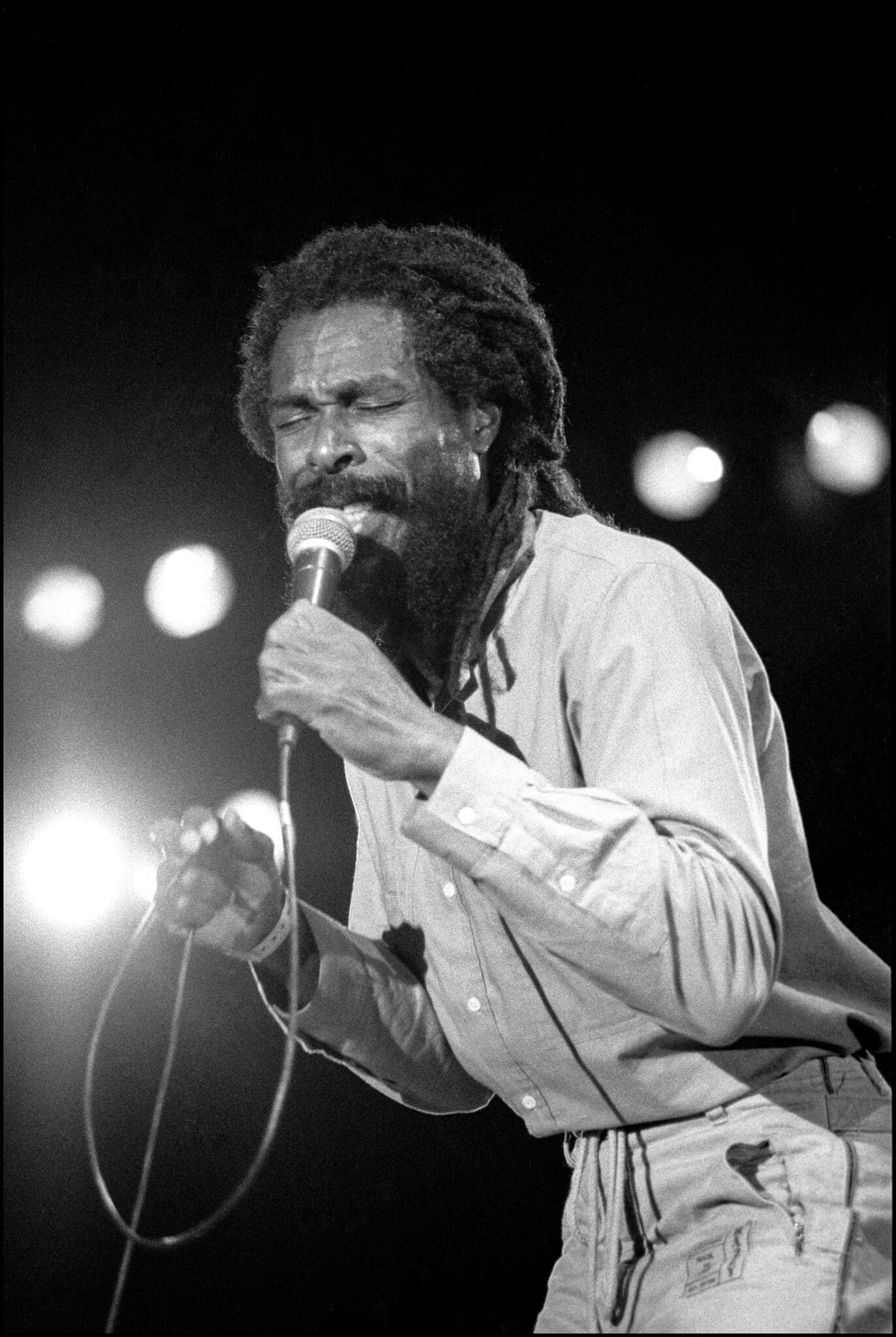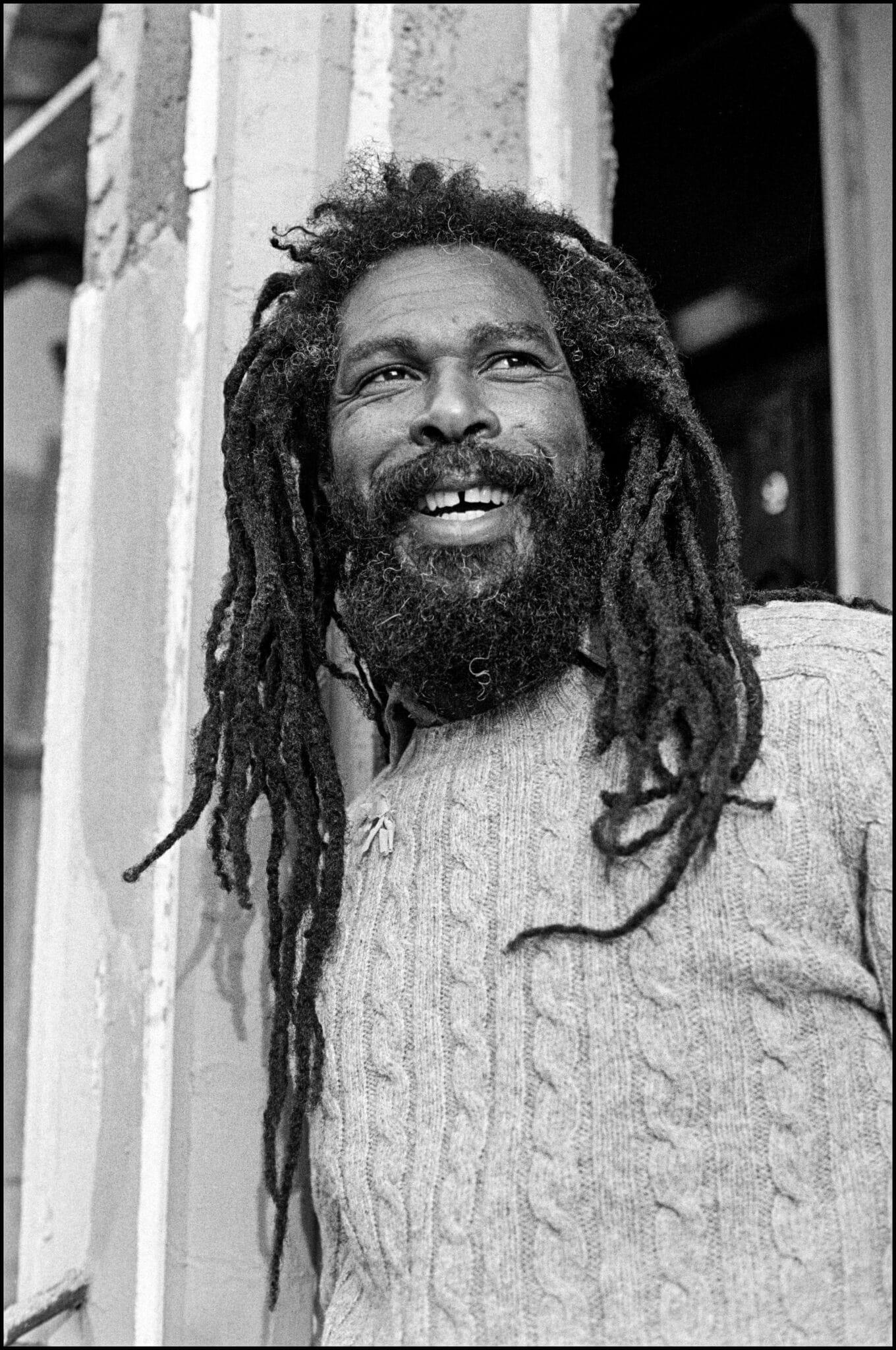The Bob Andy catalog is one of the most celebrated in the history of Jamaican music. His LP from Studio One is a best-selling singles compilation simply entitled Song Book, a cornerstone of the reggae genre’s formative years.
 On February 10, 2023, VP Records releases We Remember Bob Andy, a 15-song tribute album, featuring Tarrus Riley, Beres Hammond, Bitty McLean, Kumar, Luciano, Romain Virgo, Richie Spice, Duane Stephenson, Alaine, Lukie D, Olaf Blackwood, Sherieta, Nadine Sutherland, Sanchez, Mikey Spice, and Qyor, revisiting the late singer/songwriter’s greatest works, under the production supervision of Dean Fraser. Rootfire will be giving away Bob Andy’s “We Remember Bob Andy” Vinyl LP to one lucky winner on February 17th, courtesy of VP Records. Click here to enter the contest.
On February 10, 2023, VP Records releases We Remember Bob Andy, a 15-song tribute album, featuring Tarrus Riley, Beres Hammond, Bitty McLean, Kumar, Luciano, Romain Virgo, Richie Spice, Duane Stephenson, Alaine, Lukie D, Olaf Blackwood, Sherieta, Nadine Sutherland, Sanchez, Mikey Spice, and Qyor, revisiting the late singer/songwriter’s greatest works, under the production supervision of Dean Fraser. Rootfire will be giving away Bob Andy’s “We Remember Bob Andy” Vinyl LP to one lucky winner on February 17th, courtesy of VP Records. Click here to enter the contest.
As a songwriter, Bob Andy is widely hailed with Bob Marley, Ernie Smith, and Renford Cogle for his insights into human nature, a global worldview, and the staying power of his compositions. Never quite a household name outside of the reggae universe, his songs nonetheless became reggae and dancehall anthems. The seeds were sewn at Studio One in the heyday of 1960s creativity, under the aegis of producer Coxson Dodd. The acclaimed 1972 collection Song Book includes “Too Experience,” “My Time,” “Unchained,” “Going Home,” “Let Them Say,” and “I’ve Got To Go Back Home,” among its 12 masterpieces. Nine of these are revisited on We Remember Bob Andy along with six other catalog compositions.
As Bob Andy recalled of the Studio One era, gaining confidence in his abilities was a slow process:
“I didn’t know the songs were good. Credit to Coxson, he compiled that album … I never knew the songs would have longevity, but I knew within myself that what I was doing was the best I could do, given what I had.”
Bob Andy wrote some of his most impactful songs while still in his 20s and early 30s. He began as a founding member of the Paragons with Tyrone Evans and Howard Barrett, and then he found himself writing songs for Dodd’s stable of artists, notably “I Don’t Want To See You Cry” for Ken Boothe and a run of tracks for the young Marcia Griffiths, including “Feel Like Jumping,” “Truly,” and “Melody Life.”
These, as well as Bob Andy’s own solo recordings, were introduced to many Jamaicans in the crucible of the 1960s and 70s dancehall, exclusive for years to Sir Coxson’s Downbeat, as the singer later recalled with mixed feelings:
“I wasn’t getting any money, because the songs were not released. [Coxson Dodd] kept those songs to maintain his dominance in the dancehall. That’s why my foundation is so strong. The people learned my music in the dancehall. But I didn’t know what that counted for. One night Jackie Mittoo and myself went to a dance … that’s when I heard King Stitt play ‘I’ve Got To Go Back Home’ for the first time. After it was done in the studio, I never heard it again (until that dance). The second time it played, I recognized it, and the third time it played, I said ‘a me that Jackie, remember this?’ The song was played 17 times consecutively, in front of our eyes! By the time it reached about eight plays, people had hands on shoulders like a love train, marching around the dance. I’ve never seen anything like that.”
As a result of their exclusivity, the songs and their underlying riddims became core melodic building blocks, remade for decades to come, versions of “Unchained,” “Going Home,” “Too Experience,” “Feeling Soul,” and “My Time” and others helping define the sound of Jamaican music in the 1970s, 80s and beyond.
When you hear Barrington Levy’s majestic cover of “Too Experienced,” remember Bob Andy.
When you hear Buju Banton’s “Love Mi Browning,” remember Bob Andy, whose “Feeling Soul” is the rhythmic foundation.
When you hear Garnet Silk’s “Love Is The Answer,” Luciano’s “Carry Jah Load,” Don Carlos’s “Mr. Sun,” or Gregory Isaacs’ “Babylon Too Rough,” remember that Bob Andy’s “Unchained” is at the heart of each composition. This list goes on and on, running through hundreds of songs across the decades, embedded deep in reggae’s DNA.
Like a small handful of his gifted songwriting peers, Bob Andy was able to see the world from the vantage point of a newly post-colonial Caribbean country, and eventually find commonalities with those in far-flung corners of the world. He related aspects of his own life and his fellow Jamaicans’ culture in a way that continues to resonate.
“The more you give to life, is the more you’re gonna get from life
–Bob Andy, from “Life” (1972)
So go on and give, don’t count the cost
And the less you give to life, is the less you’re gonna get from life
So save your dough, and your soul might be lost.”
Bob Andy’s best-known recording is undoubtedly the duet with his performing partner Marcia Griffiths, an international hit interpretation of Lorraine Hansberry’s poignant and topical “Young Gifted & Black,” first popularized by Nina Simone.
“I was making a living off ‘Games People Play,’ getting a check from Performing Rights Society, living with Marcia and her sister’s family. One afternoon, Harry J came and asked me to come with him to Dynamic Sounds. I said, ‘Marcia … come listen to some rhythms.’ … He played the rhythm of ‘Young Gifted & Black’ and the song was already popular from Nina Simone. I arranged the harmonies, gave Marcia half a verse and took half a verse for each verse. That was the latter part of 1969. In May of 1970, Harry J came to us and asked if we had passports. I said ‘why?’ and he said, ‘the song has taken off in England, and you’re needed on Top Of The Pops.’ Bob and Marcia was born.”
While “Young Gifted & Black” gave the duo mainstream recognition and enduring acclaim in England and Europe, the lack of financial reward was a grave disappointment. Andy’s embrace of the progressive socialism sweeping Jamaica in the 1970s deepened as a result, as well as his affinity for Rastafari. His subsequent material became even more philosophical and a reflection of the spirit of the 1970s.
“That you are not your mind, and that your mind starts when you start developing relationships with your environment. I always knew that my mind was a development of my relationship to my environment. One of the first tenets of Rastafari is ‘man, know thyself.’”
“I can see the fire spreading, it’s getting hotter and hot
–Bob Andy, from “Fire Burning” (1974)
The haves will want to be, in the shoes of the have-nots
If there’s a sign on your door, then you will be safe for sure
But if you are in pretense, you’re on the wrong side of the fence.”
Years after leaving Studio One and then producer Harry Johnson, well into his solo career, more and more of Bob Andy’s songs would be picked up and reinterpreted by generations of Jamaican performers, from John Holt, Byron Lee, and Gregory Isaacs, to Barrington Levy, Sanchez, Marcia Griffiths, and nearly a hundred others.
Song Book, plus his albums Music Inside Me, Lots Of Love & I, Friends, and the collection of self-productions Retrospective, form the core of his catalog. VP released Hanging Tough, a Willie Lindo production, in 1997. His last full-length release was Reggae Land in 2006, but he continued to record singles through the 2010s up to his final years.
Dean Fraser, who previously produced VP’s We Remember Gregory Isaacs, envisioned We Remember Bob Andy through conversations with VP’s Christopher Chin after the singer passed away in May of 2020. Fraser eventually recorded 15 vocal tracks and added an additional nine instrumental interpretations for the full-length project. “The vision was to have younger singers interpret what Bob was singing then. I had to sit, listen, and put the relevant artists to [each] song. Even though it’s the same song, I would get a new interpretation and a new feel and sound from these great compositions.
“Great songwriting comes from the heart. It’s also the way in which the poet tells the story. If you are able to tell a good story and put it in the right perspective, you come up with a great song. Bob Andy was one of these people who told stories … he would show the kind of person he was, and how the system worked against us as a people. He would bring that out in these songs and make political statements that hit you right on.”
–Carter Van Pelt
Carter Van Pelt is founder of Coney Island Reggae On The Boardwalk. His August 2014 interview with Bob Andy is included in WKCR’s Bob Andy Memorial Broadcast from March 2020. He also compiled Apple Music’s Bob Andy Essentials.
Pre-Save “We Remember Bob Andy” Here!
Enter To Win “We Remember Bob Andy”


